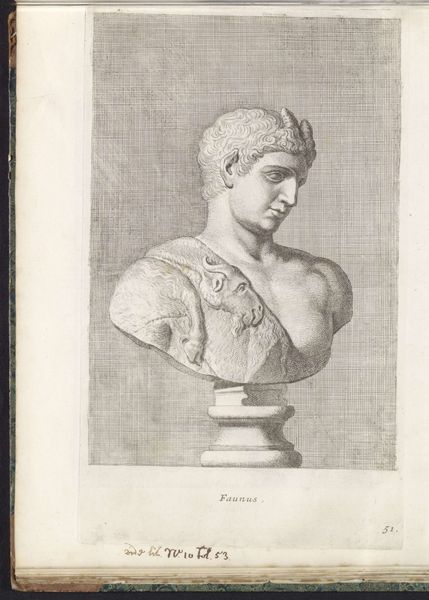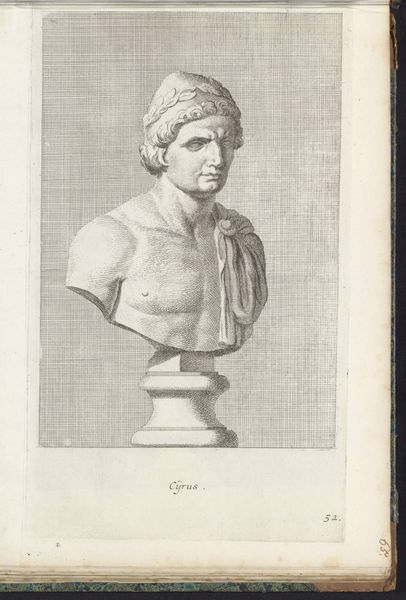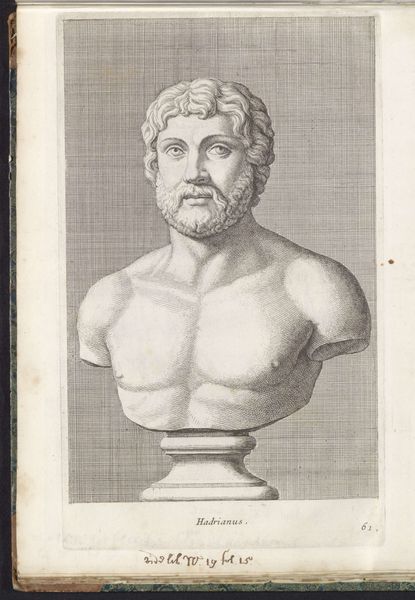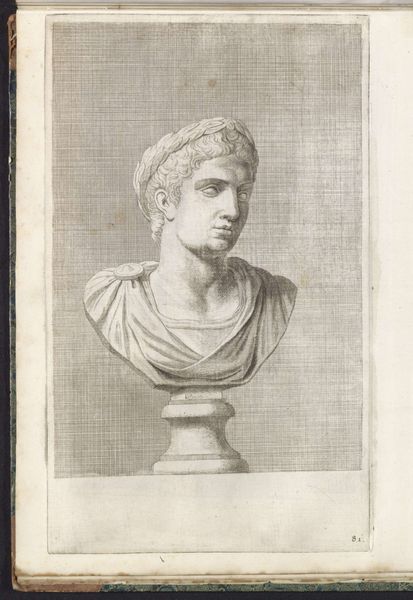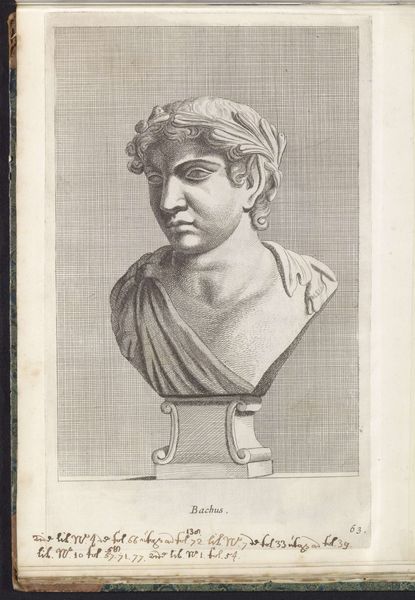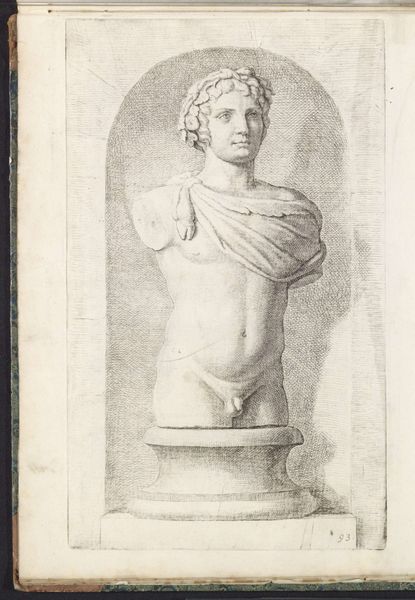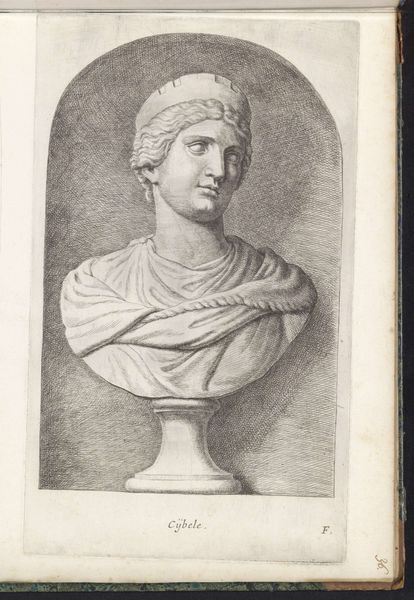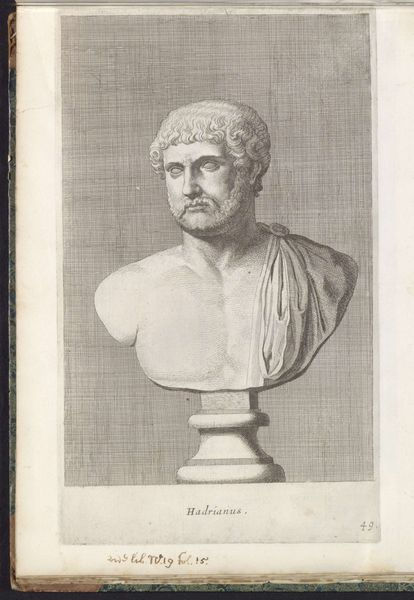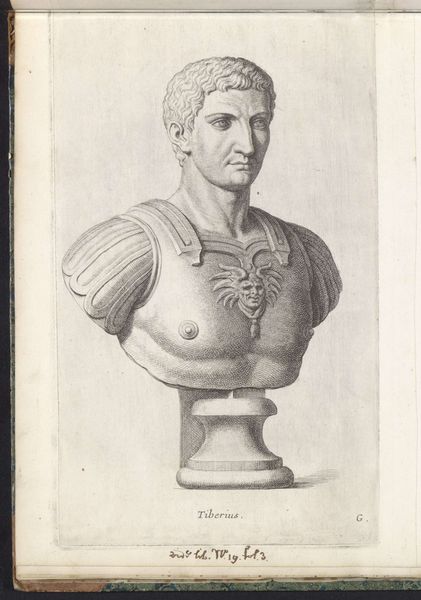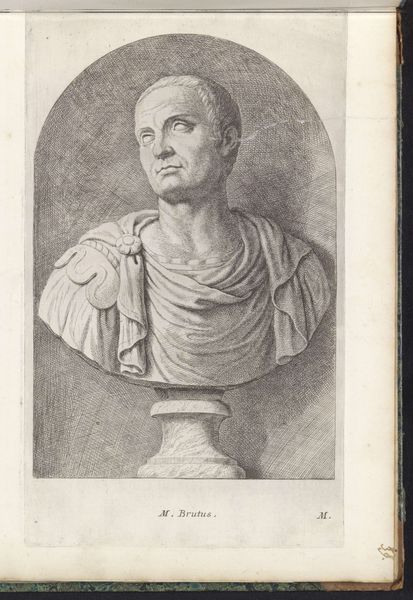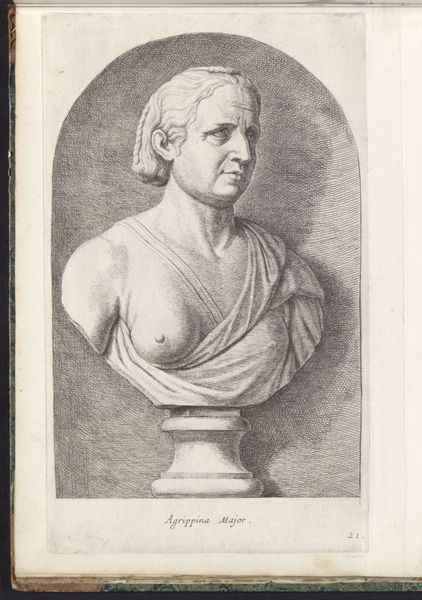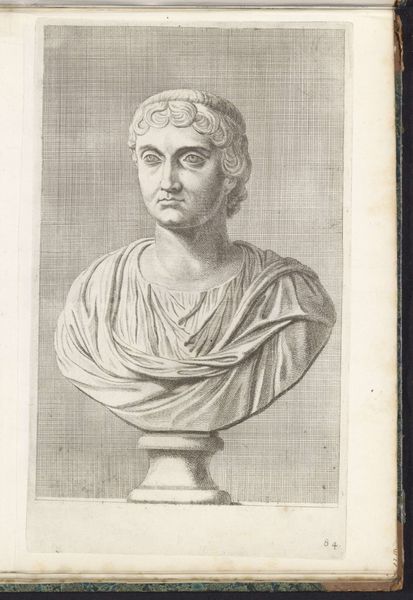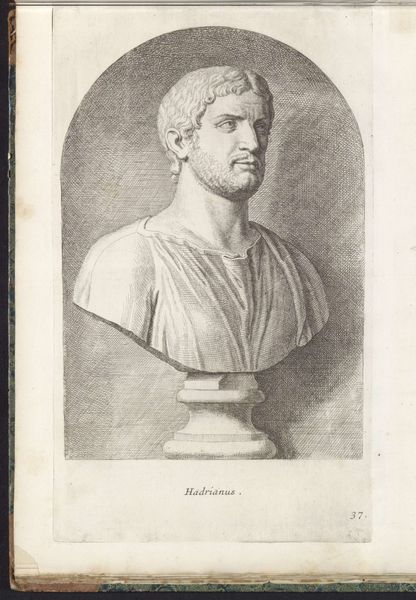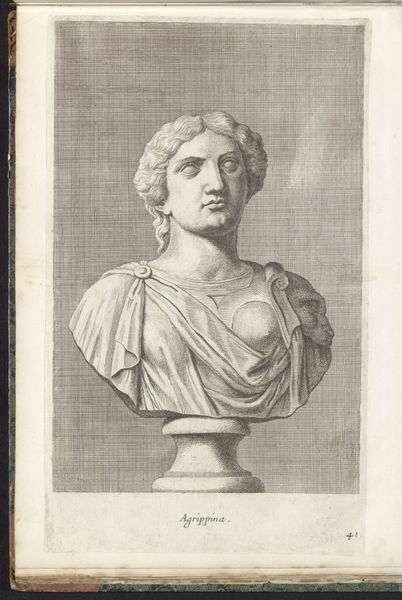
engraving
#
portrait
#
classical-realism
#
romanesque
#
portrait drawing
#
engraving
Dimensions: height 325 mm, width 194 mm
Copyright: Rijks Museum: Open Domain
This engraving of Emperor Domitianus was created by Hubert Quellinus in the 17th century. The bust emerges from a flat, lined plane, a study in contrasts between form and void. The artist uses the graphic language of hatching and cross-hatching to sculpt Domitianus's features. This technique not only models the contours of his face and torso but also evokes the texture of marble, a nod to classical statuary. The linear precision mirrors the emperor’s rigid gaze, suggesting an immutable authority. Yet, the work exists as a print—a reproduction—which inherently challenges the notion of singularity and power. The act of reproducing the emperor’s image destabilizes the traditional aura of the artwork. Instead, it functions as a sign within a larger cultural discourse about representation and authority. The calculated details and controlled lines of the bust serve as a commentary on the emperor’s calculated and controlled reign, inviting us to decode the structures of power embedded in its very form.
Comments
No comments
Be the first to comment and join the conversation on the ultimate creative platform.
